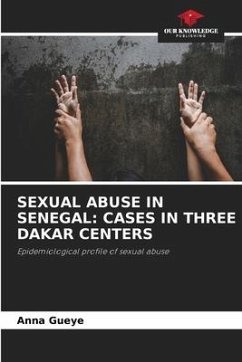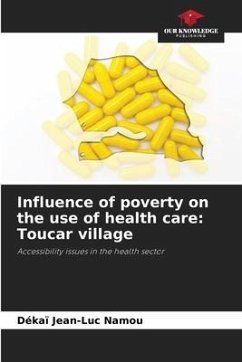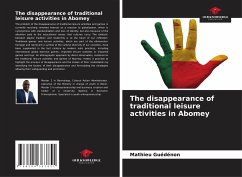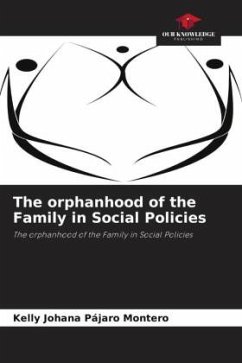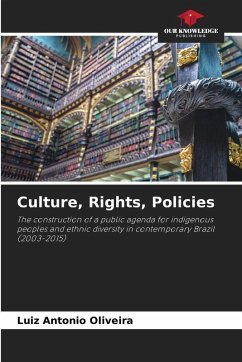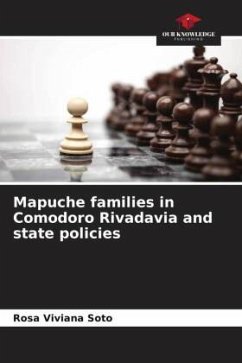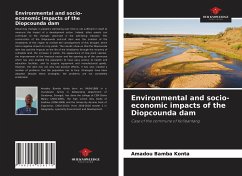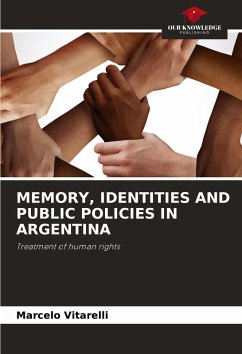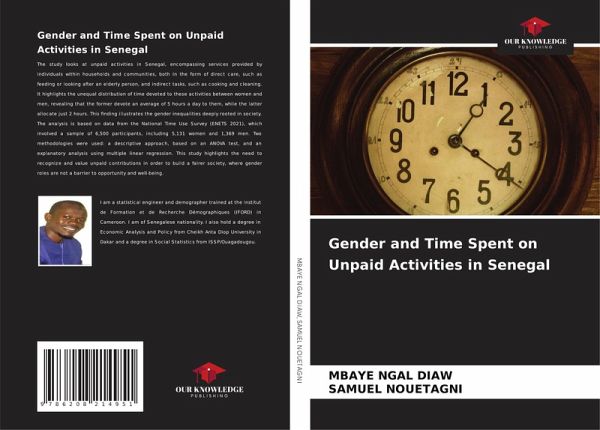
Gender and Time Spent on Unpaid Activities in Senegal
Versandkostenfrei!
Versandfertig in 6-10 Tagen
53,99 €
inkl. MwSt.

PAYBACK Punkte
27 °P sammeln!
The study looks at unpaid activities in Senegal, encompassing services provided by individuals within households and communities, both in the form of direct care, such as feeding or looking after an elderly person, and indirect tasks, such as cooking and cleaning. It highlights the unequal distribution of time devoted to these activities between women and men, revealing that the former devote an average of 5 hours a day to them, while the latter allocate just 2 hours. This finding illustrates the gender inequalities deeply rooted in society. The analysis is based on data from the National Time...
The study looks at unpaid activities in Senegal, encompassing services provided by individuals within households and communities, both in the form of direct care, such as feeding or looking after an elderly person, and indirect tasks, such as cooking and cleaning. It highlights the unequal distribution of time devoted to these activities between women and men, revealing that the former devote an average of 5 hours a day to them, while the latter allocate just 2 hours. This finding illustrates the gender inequalities deeply rooted in society. The analysis is based on data from the National Time Use Survey (ENETS 2021), which involved a sample of 6,500 participants, including 5,131 women and 1,369 men. Two methodologies were used: a descriptive approach, based on an ANOVA test, and an explanatory analysis using multiple linear regression. This study highlights the need to recognize and value unpaid contributions in order to build a fairer society, where gender roles are not a barrier to opportunity and well-being.





